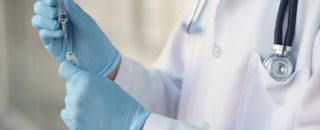“Our larger mission is to support physical activity and build community through fun outdoor activities among LGBT youth.”
In the fall of 2014, a friend of mine’s son locked himself in his room and refused to get out of bed for several weeks. This good friend reached out to trusted family, to doctors, to her spiritual community and to members of the LGBT community for help, but nothing could get her 15-year-old son out of bed. The following year, this once straight-A student, honors AP scholar and concert pianist was expelled from school for truancy. It took him the entirety of 2015 to work up the will to tell his mother that his football teammates and coaches had ridiculed him, repeatedly called him “faggot” on the field and spread threatening rumors about him throughout the school. The shame associated with these experiences had consumed him to the point that he was afraid to return to his classes and he did not feel there was a trusted adult on his side. Today, counseling is part of his regular routine, he has completed his GED and he is working hard to get his life back on track toward personal success and happiness.
According to the Centers for Disease Control and Prevention, this student’s experiences are not out of the norm for LGBT students in America at present. A CDC survey of more than 7,000 seventh- and eighth-grade students from a large Midwestern county examined the effects of school social climate and homophobic bullying on lesbian, gay, bisexual and questioning youth and found that: LGBQ youth are more likely than heterosexual youth to report high levels of bullying and substance use.
Students who are questioning their sexual orientation report more bullying, homophobic victimization, unexcused absences from school, drug use, feelings of depression and suicidal behaviors than either heterosexual or LGB students.
Transgender youth are even more vulnerable to bullies who choose to target them. The political climate, at present, is not a safe one for young LGBT people, as the legitimacy of their identities is still up for public debate and their needs continue to be ignored by leadership. There are, as yet, no federal protections for LGBT students in schools, allowing states and school districts to interpret LGBT student rights as they see fit. We know these students are at a greater risk of negative educational outcomes, but how does an unsafe school climate impact an LGBT student’s ability to exercise and engage in healthy outdoor activities? In Texas, policies are being drafted and considered that would ban trans youth from playing sports based on their “gender identity.”
In a 2014 National Institutes of Health study examining adolescent and young-adult hours per week of moderate to vigorous physical activity (MVPA) and team sports participation by sexual orientation, behavioral health scientists investigated contributions of gender nonconformity and low athletic self-esteem to possible sexual orientation differences in exercise. They found that LGBT youth are getting 1.21-2.62 hours per week less MVPA and are 46-76 percent less likely to participate in team sports than same-gender heterosexuals. Gender nonconformity and athletic self-esteem accounted for well over half of this difference.
We hear stories like that of my friend’s son every day, and we remember some of these experiences from our own childhoods. This collective memory is what fuels the mission of LezRideSA. While we do provide no-cost access to fitness classes for our San Antonio community, our larger mission is to support physical activity and build community through fun outdoor activities among LGBT youth by providing the first ever LezRideSA’s LezFund Fun Grant to local area LGBT youth organizations.
LezRideSA is the premier funding source for LGBT San Antonio youth organizations, aiming to improve healthy behaviors through dance, sports, hiking, biking and other outdoor team-building activities while providing safe spaces for LGBT youth to thrive. During our first year of programming, LezRideSA successfully provided 25 community bike rides and 20 free exercise classes, serving more than 200 unique individuals from all across the city. Our mission is supported by a number of local community organizations, including The Health Collaborative, La Botánica, Texas Prosthetic Center and SA2020. We have been especially pleased to see the outpouring of ally support, especially from Lisa Gillespie and John Villalobos, who donated several hundred dollars to support this important mission throughout our first year of programming. Many thanks to our community members who shared cash donations and in-kind assistance and participated in our LezRide Pride-Ride in June and our Dance-A-Thon fundraiser in December.
Visit lezridesa.com to apply for the LezRideSA’s LezFund Fun Grant or learn more about LezRide weekly rides, LezMove free exercise and the LezRide Pride event.





